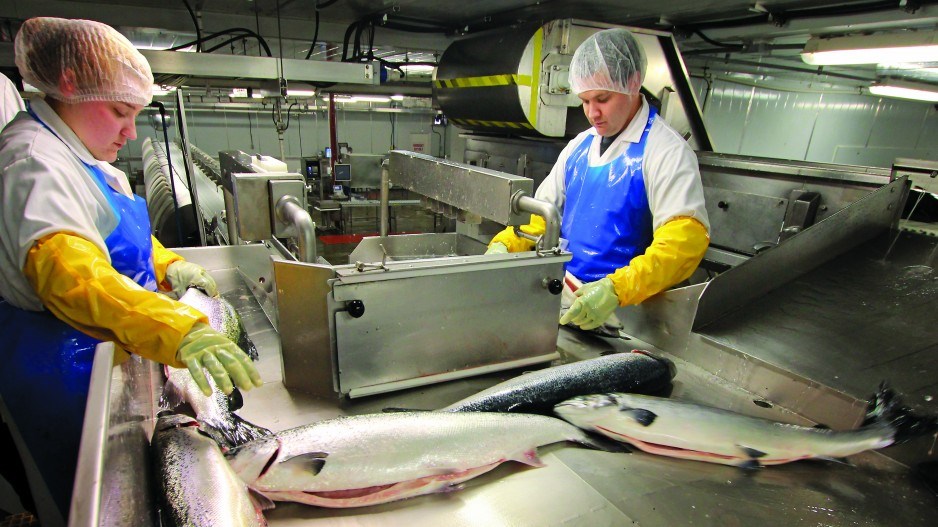Premier John Horgan wants to have a discussion on wild salmon and fish farms, but learned Friday that that discussion will likely involve a lot of yelling.
Horgan and B.C. Agriculture Minister Lana Popham held a press conference Friday June 15 to announce a new wild salmon advisory council.
The B.C. government is assembling experts to come up with a “made-in-B.C.” wild salmon strategy, and appears to be deferring any major decisions on the question of fish farms until at least the fall, when it is expected to act on the council's recommendations.
Horgan was interrupted by an anti-fish farm activist, who shouted: “We don’t have time. Our salmon are dying.”
Horgan told her he would “take that into consideration” and said his government would continue to have “nation-to-nation discussions” with First Nations, who are divided on the issue of fish farming.
She responded: “There is no nation-to-nation discussion” adding, “This is nothing but a farce.”
“I disagree,” Horgan said several times and ended by saying, “You are welcome to put your name on a ballot anytime soon.”
B.C.’s wild salmon stocks have fluctuated fairly dramatically over the last two decades, with the most urgent concern being declining Chinook stocks, which make up the bulk of the diet of Southern Resident Killer Whales – also in decline.
The Department of Fisheries and Oceans has implemented full sport fishing closures in some areas, and Chinook retention reductions in others.
Horgan seemed to question those targeted closures, and said part of the exercise of the new advisory council would be to work with the federal government, which is the ultimate authority, when it comes to salmon.
“My view of the Department of Fisheries and Oceans is that they annually try and manage stakeholders, rather than have a long-term vision for our oceans and our fish,” Horgan said. “And the closure of selective recreational fisheries along the Strait of Juan de Fuca is the challenge.”
Horgan’s government is under intense pressure to shut down open-net fish farms. Just recently, the Pacific Salmon Foundation lent its voice to the call to phase out open-net salmon farming.
The epicenter of the dispute is the Broughton Archipelago, where Marine Harvest operates more than 30 active fish farm sites at any given time. Twenty provincial licences, 10 of them held by Marine Harvest, are up for renewal, as they expire next week.
Asked when a decision on those licences will be made, Horgan said Agriculture Minister Lana Popham will “have more to say on that in the days ahead.”
It was pointed out that all 14 experts appointed to the new advisory council are from the wild salmon sector, and none from the fish farm sector.
Asked if the fish farm industry should be nervous about the makeup of the advisory council and the direction the government is moving in, Horgan said, “I don’t think so.”
He pointed out that, while the province issues fish farms licences, the federal government is responsible for tenures.
“The province is responsible for the anchors that hold the nets to the ground,” Horgan said. “The federal government’s responsible for everything else.”
The previous Liberal government struck a special ministerial advisory council to advise the government on what to do about fish farms.
The NDP government is still considering the recommendations it made. But Horgan hinted that he doesn't think salmon farming is the only concern facing wild salmon in B.C.
“Salmon aquaculture is one component of the challenges facing our wild species,” Horgan said.




